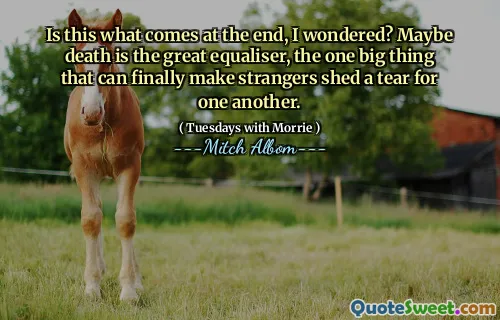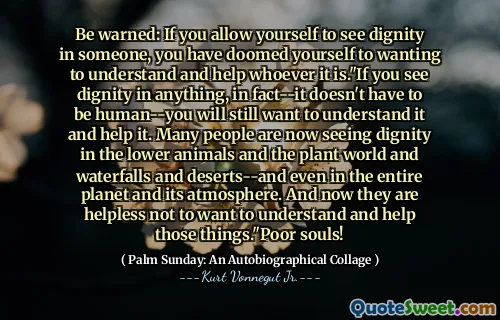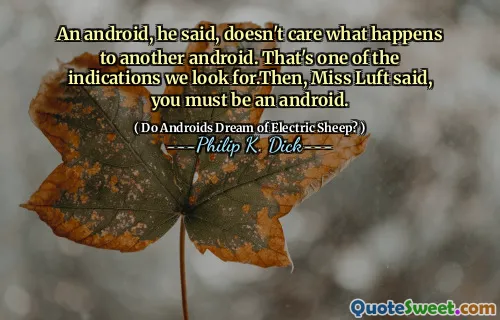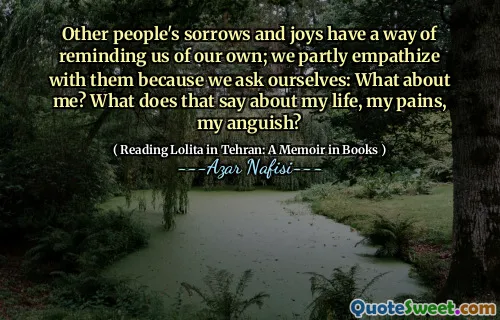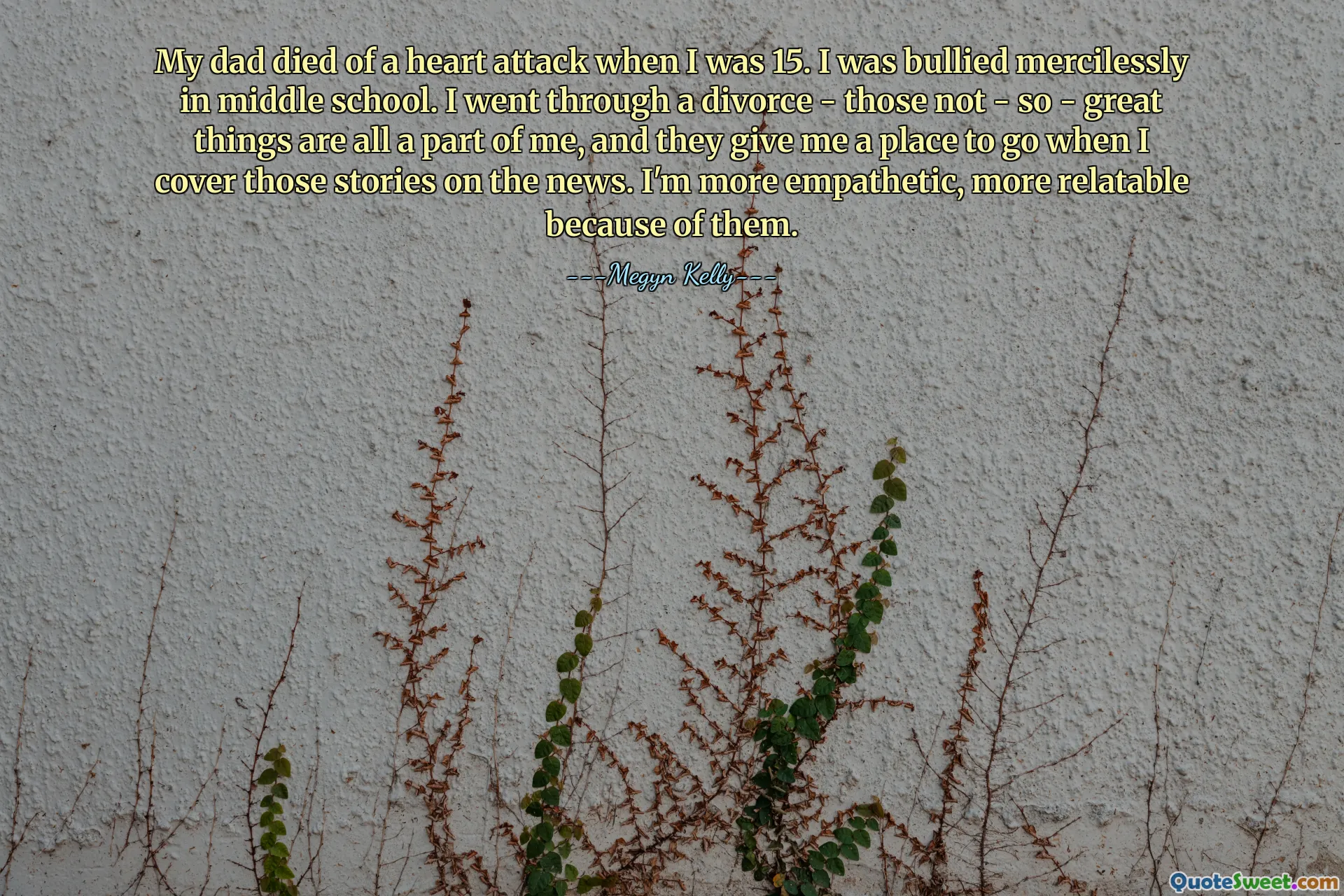
My dad died of a heart attack when I was 15. I was bullied mercilessly in middle school. I went through a divorce - those not - so - great things are all a part of me, and they give me a place to go when I cover those stories on the news. I'm more empathetic, more relatable because of them.
This quote exemplifies how life's most challenging experiences can become sources of strength and empathy. Facing the loss of a father at a young age, enduring intense bullying, and navigating the difficulties of divorce are profound hardships that shape one's perspective on life and human vulnerability. Rather than allowing these hardships to become burdens, the individual chooses to embrace them as integral parts of their identity. This mindset fosters a deep-seated empathy, which not only enriches their personal growth but also enhances their professional work, especially in storytelling or journalism. When covering stories that involve pain, loss, or hardship, such an individual can connect more authentically with their subjects and audience, recognizing that hardship is a universal experience. Furthermore, this openness underscores the importance of resilience—how adversity, when acknowledged and integrated, can produce profound compassion and understanding. Their narrative reminds us that scars from our past are not signs of weakness but badges of resilience and pathways to greater empathy. It encourages embracing life’s difficulties as opportunities for self-development and as tools to foster genuine human connection. This perspective can inspire others to see their struggles not as burdens but as catalysts for growth and empathy, reinforcing the idea that adversity can be a powerful teacher and a cornerstone for building meaningful, compassionate relationships.






